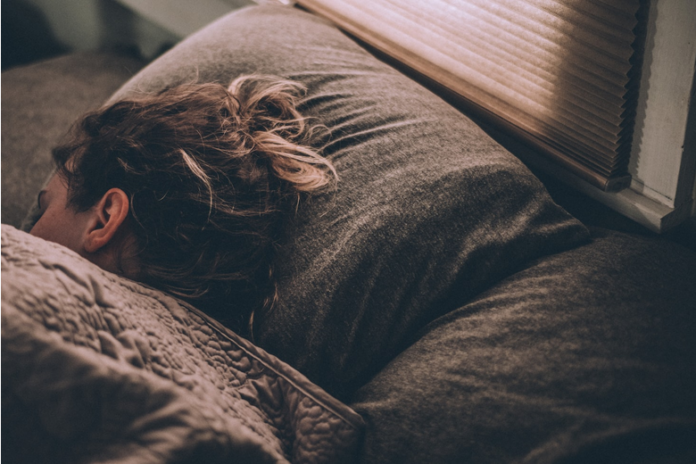There is nothing as frustrating as craving a good night’s sleep but not being able to get one. Sleep is something that we take for granted, but for many people, it can be elusive and hard to find.
According to the American Sleep Apnea Association, one in three people do not get the recommended amount of sleep. For the average adult, that is about 8 hours. Younger people require even more sleep, with school-age children needing 9 to 11 hours.
So, if you feel frustrated and are wondering why you aren’t able to fall asleep, this article is for you. Today, we will look at five factors that can help you get a good night’s rest.
1. Avoiding Consuming Anything Stimulating
If you aren’t getting enough sleep, one of the first things to examine is your diet. Studies have shown that a major cause of poor sleep is snacking on unhealthy foods before sleep.
Certain food items and beverages simply interfere too much with our bodies and make getting those z’s difficult. The best-known case of this is how coffee and sleep are rarely a good match together.
According to Mattress Verdict, caffeine affects sleep by blocking adenosine receptors, a sleep-inducing compound. What’s worse is that even if you manage to fall asleep, caffeine reduces your deep sleep duration by 20%.
If you absolutely need to snack on something, ditch the coffee and go for something healthy. The National Sleep Foundation recommends food that is rich in complex carbs, like whole wheat toast. Sure, it’s not a beverage, but many people drink coffee because they feel slightly hungry.
2. Moderate Your Mobile Phone Usage
This is one of the biggest culprits behind most people’s sleep problems. It has become something of a ritual for people to unwind with their phones at night. Typically, this involves spending the last few hours before bed, scrolling through TikTok or Instagram.
Each scroll throws a dice that determines if you will see a video that triggers humor, sadness, joy, or anger. Do this for just an hour, and you are exposing yourself to rapid changes in emotions.
According to Michelle Drerup, PsyD, DBSM, you want to stay phone-free, for at least an hour or two before bed. Sadly, this can be a tough habit to kick. We have simply become too reliant on social media as a dependable source of entertainment. That said, when it starts to affect your sleep, it is time to find alternatives.
Consider reading a few pages of a book if you really need to unwind before bed.
3. Adequate Physical Activity
What if your diet is more or less healthy, and you aren’t drinking any coffee or taking stimulating substances? Well, it could be that you aren’t getting enough physical activity. If you sit on a chair all day, you can’t expect to be tired and ready to sleep at night.
Research shows that doing about thirty minutes of aerobic exercise can lead to a noticeable difference in sleep quality. Exercise has been proven to make you fall asleep faster and also boosts the quality of your sleep. So states Dr. Charlene Gamaldo, medical director of John Hopkins Center for Sleep.
It also drives away daytime sleepiness and releases endorphins that make you feel more energetic during the day. Getting more active has numerous other benefits as well, so it’s worth a try.
4. Reducing Stress and Anxiety
This is one of the more obvious factors that you are probably already aware of. However, it is still worth looking at.
We live in an age where the sources of stress are many. Even children aren’t spared, with the constant stream of homework and assignments. As adults, we have to deal with the pressures of our careers, toxic co-workers, existential worries about life, and more.
Even outside work, bad relationships can put you in a constant state of anxiety. The effects of stress on the body and sleep have been widely studied. Stress can cause chronic sleep deprivation by raising cortisol levels in your body. Moreover, reducing stress is challenging, as you simply can’t wish away your problems in life.
That said, there are many short-term solutions that can treat the symptoms until you can resolve the chief stressor. These include regular meditation, practicing yoga, breathing exercises, and progressive muscle relaxation.
5. Improving Your Sleep Environment
There is a possibility that your sleep environment isn’t the most ideal. Light, noise, and even temperature can all affect your sleep. Ideally, you want your room to be dark, with as little noise or disturbances as possible. This can be tough if you live by a road with frequent motorists.
A pair of good earplugs and an eye mask can come in handy in this regard. Most people also find a temperature of 60-65°F to be comfortable for sleeping. This is because we generally fall asleep faster when our body temperature drops.
Try to minimize as many disturbances as possible. If you have pets that keep moving around, try to shift their beds away from yours. Finally, ensure you are wearing comfortable sleepwear.
Conclusion
If you follow the above steps, you should hopefully see a marked improvement in your sleep. However, if you are still not finding success, there could be medical or other factors at play.
Explain the situation to your doctor and see what they have to say. Some people suffer from conditions like sleep apnea or neurological issues like narcolepsy. These will require medical intervention. You may not be suffering from them, but it’s still better to get a checkup anyway.

















